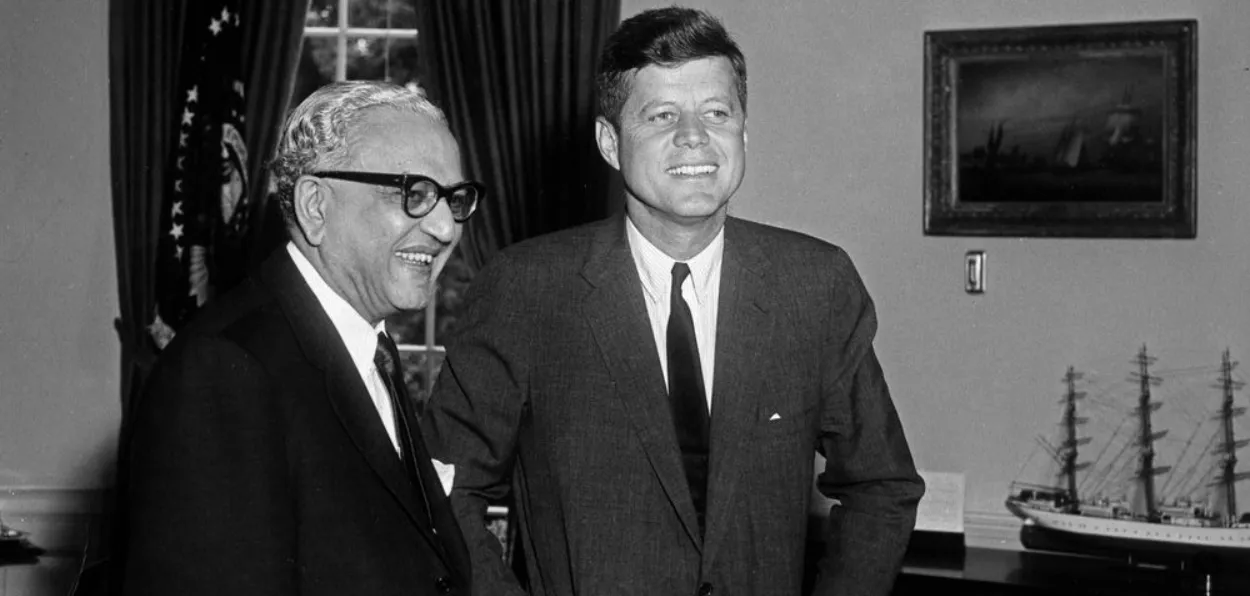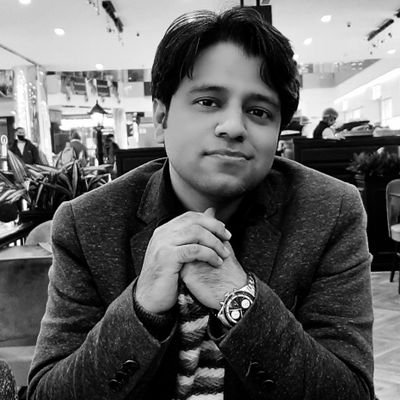
 Saquib Salim
Saquib Salim
“I remember when I went to the United States as Ambassador, I was asked at my first Press Conference whether I was a Muslim. I answered: "How is it any business of yours what my religion is? That is purely my personal affair. All that you have a right to know is that I am an Indian and proud to be an Indian. When I meet an American, I do not ask him, ‘Are you a Protestant or a Catholic or a Jew?’"
This was Mahommedali Currim Chagla, the first Indian Chief Justice of the Bombay High Court, who had defended India’s stand on Kashmir against Pakistan in the United Nations Security Council (UNSC) and served as Education Minister of India.
According to Sanjay Hegde, a senior lawyer at the Supreme Court (SC) of India, Chagla was offered the inaugural post of the Chief Justice of India (CJI) in 1950, which he declined. Justice H. J. Kania became the Chief Justice of India. Had Chagla not declined, the newly independent India, which had just witnessed a violent partition in the name of religion, was to have a Muslim as its first CJI, and it tells a lot about the leaders of India.
Chagla was no mean person. He had proved himself in the fields of law and public service.
Born and brought up in Bombay (now Mumbai) in 1900, Chagla was hugely influenced by Tilak. In 1908, in a sedition case, Tilak was sentenced to 6 years imprisonment and it led to riots in the city. Chagla was 8 years old then and expressed his sympathies with the nationalist protestors by walking in the streets wearing Indian attire against the orders of his guardians, who asked him to wear European clothes.
For Chagla, the love for the motherland never faded. He would keep getting in ‘trouble’ for wearing patriotism on his sleeves. In college, their Principal warned him against organizing a debate on national politics; at Oxford, he was identified as a student with ‘revolutionary’ zeal; at the Bombay High Court, he was asked by the Chief Justice not to take part in Simon Commission protests.

M C Chagla addressing a rally in Mumbai
Chagla was punished for leading the protests against the Simon Commission as the Chief Justice didn't renew his contract to a Professor at the Law College.
His brush with politics was like a leading light of several movements. In today's scenario, his role was that of a ‘think tank’. His politics was based on three principles - unity, secularism, and democracy.
Chagla was close to M. A. Jinnah. In his own words, “At one time, no one was closer to or more intimate with Jinnah than I — if one could ever be close to or intimate with a man of Jinnah’s disposition. I left him when he started propounding the two-nation theory. The break was complete and final, and I never saw him again, and had no contact with him whatsoever.”
The two-nation theory was against Chagla's political creed. He said, “I have always thought that it was India’s destiny to remain one country and one nation. One has only to look at a map of Asia to be convinced of this fact. With the Himalayas in the north and the sea in the west, south, and east, India stands out as a distinct country. The Gods in their wisdom wanted India to remain one and undivided.”
The Muslim community for Chagla was as much an Indian citizen as Hindus were. He was against any preferential treatment for the community. In his view, it was detrimental to democracy. In the capacity of the Chief Justice, he once had to fight against the Chief Minister, Morarji Desai, for not appointing a Muslim judge.
In his memoirs, Chagla wrote, “In selecting Assistant Judges from Civil Judges, we once passed over a Maslim who was a senior judge in favour of a non-Muslim. Morarji came down heavily on me and wanted to know why I had ignored the claims of the minority community. I told him that as far as judicial appointments were concerned, I did not take any communal considerations into account, and made no distinction between majority and minority communities. I only wanted the best judges, whatever their community might be. I explained that it was not my idea of secularism that a judge should be appointed Irom a minority community, even though the man was unfit. Real secularism meant that one did not pass over the claims of those who were fit, merely because they belonged to a particular community. If I found that all the Civil Judges who deserved to be promoted were Muslims, I would not hesitate to recommend all of them, but communal representation in the judiciary is something I refused to accept. It is true that other things being equal, I might lean on the side of the weaker communities, but to accept communal representation as a principle in appointments to the judiciary would completely undermine the strength and status of this vital State organ.”
Going against the convention of appointing ministers from the ruling party Jawaharlal Nehru asked Chagla to join the Union Cabinet of Ministers in 1963 as Education Minister. Of several crowning achievements, the establishment of Jawaharlal Nehru University (JNU) in New Delhi was one. Another, rather controversial, legacy of his was the minority character debate at Aligarh Muslim University (AMU). Chagla made it clear in his dealings that “the Aligarh University was not a minority institution as defined in the Constitution; that it was neither established nor maintained by the Muslim community; that it was a national institution in which the whole nation was interested; and that though undoubtedly it had a special purpose to serve, namely, the advance of Arabic and Islamic studies, that did not change its essential character, be- cause even non-Muslims might have an interest in such studies.”
In 1964 and 1965, when Pakistan attacked India, Chagla was sent to the UNSC to argue India’s case in front of the World. Pakistan, led by Z. A. Bhutto (then Foreign Minister), claimed that Muslims of Kashmir were in open armed rebellion against India and Pakistan was helping them. It needed a jurist, who happened to be a Muslim by birth, to refute these lies.
Chagla went to the UNSC and said, “This is a war between two ideologies. Let us face it. On the one hand, there is a religious State; and on the other a secular State. This is the conflict; it is not Kashmir. Kashmir is merely the symptom; it is not the disease. The disease is that Pakistan believes in a religious state; it believes in religion as the nexus between citizens. We believe in a secular State, in a multi-racial society. And it is also a fight between a free society and democratic institutions on the one hand, and dictatorship and regimentation on the other. These are the issues involved in this war. And I think, if I may say so, that it is in the interest of Asia and the world that our free society, our multi-communal federation, should survive.”
The UNSC was told, “To Pakistan, everything is communal. She cannot understand how Hindus and Muslims can live peacefully in Kashmir and have the best of relations. Her philosophy is that in the very nature of things, Muslims must hate the Hindus and the Hindus must hate the Muslims.”
Several countries supported India in the conflict and thereby defeated the propaganda that the 'Hindu' government of India was oppressing Muslims.
ALSO READ: Baban Mian: A Gopalak’s journey of faith, Harmony, and legacy
A constitutionalist and a defender of Civil Liberties, Chagla rose against the government he served as a minister during the emergency. When the opposition leaders were imprisoned in 1975, Chagla went to Bangalore to argue the case of Atal Bihari Vajpayee, L. K. Advani, Madhu Dandavate, and Shyamnandan Mishra. He was the Chief Guest when the Bharatiya Janata Party was formed under the Presidentship of Atal Bihari Vajapaye on 29 December 1980.
